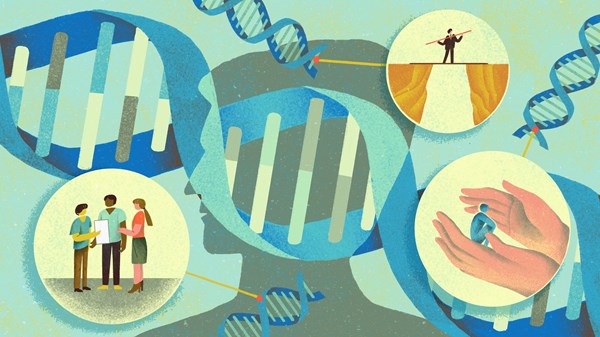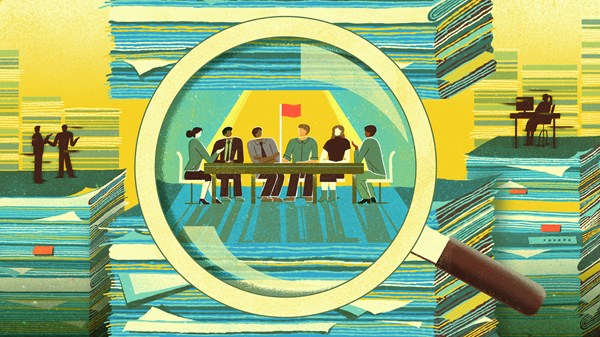When an interested donor asks Lilian Samaan what ministry in the Middle East looks like, she starts her explanation over a delicious meal of Jordanian mansaf, Syrian kibbeh, or Iraqi dolma.
Samaan, who was born in Jordan, says that hospitality and food are essential to Middle Eastern culture, even since the days of Jesus and the early church—it’s a way to build relationships and express love.
“A basic way to begin to understand the region is to befriend their people,” Samaan says. Only by doing this, she argues, can we begin to “really identify with them in their context, their pain, their oppression, their suffering, and their joys.”
Context, pain, oppression, suffering, joy—these ideas offer a picture of what life is like for many Middle Easterners. For Westerners whose understanding of the Middle East is largely shaped by the news, Samaan encourages a willingness to “uneducate.”
“Let the stories of people inform your view,” Samaan says. Those stories are likely to feature a strong, personal connection to Middle Eastern history—to tribes, to tremendous unrest, to the church, to the Bible, and to the deep love God has for this region. In fact, any impactful ministry in the Middle East must consider both the great suffering and history of this land as well as the remarkable warmth and openness of its people.
Acquainted with Grief
Heart4Iran, an organization led by Mike Ansari, offers one outlet for these stories of suffering. Born in Shiraz, Iran, to a secular Muslim family, Ansari was only seven years old when the Iranian Islamic Revolution rocked his country and shocked the world. Ansari felt the full impact of the revolution when he witnessed the death of his 12-year-old cousin at the hands of the Islamic regime.
Now, Ansari directs Mohabat TV, a 24/7 Farsi satellite station that covers many topics relevant to his Iranian audience, ranging from mental health and marriage to spiritual warfare and persecution. Mohabat TV’s holistic approach is having a powerful impact in Iran. The station has a projected audience of 16 million, which represents around a fifth of the Iranian population, and the media arm processes around 700 contacts every day, over 90 of whom are making a commitment to Christ.
The people of the Middle East long to communally process grief alongside those who have experienced it. Seeking to also meet this need, Vision Communication International, produces targeted social media content for Arabic-speaking people in the Middle East and North Africa, directly connecting their stories to the story of the gospel. And the programming at Mohabat TV, which includes viewings of the Jesus Film, helps viewers to connect their own suffering, fear, and grief with Jesus, the one who was “a man of suffering, and familiar with pain” (Isa. 53:3).
Warm and Welcoming
But while pain marks the Middle East in profound ways, it does not diminish the region’s warmth, kindness, and desperation for the Gospel. In fact, these are often found together. “Suffering is what keeps us alive,” Samaan says. “We don’t want to be protected from suffering, because that is what allows us to experience God in ways that are transformational.”
In the face of grief, healing for those in the Middle East is often found in the symbiosis of safe communities. Mutually transformational relationships, with the goal of discipleship, character building, and church formation, are the expression of a successful and sustainable ministry. For ministry among Muslims, recognizing and reciprocating their spirit of hospitality—a value that Jesus embodied—paves the way to sharing the gospel and engaging in true discipleship.
Samaan says that many of her Middle Eastern friends quip that they have time but Westerners have appointments. For those who want to better understand and minister to people in the Middle East, a willingness to stow away watches is imperative.
Refugee ministry highlights the warmth, welcome, and willingness to sit a long while, especially in the aftermath of trauma. The Middle East is facing a massive displacement crisis, a tragedy that invites more organizations and volunteers to embody hospitality and compassion in the name of Christ. One ministry in northern Iraq, in the city of Zakho, offers art therapy programs to Yazidi refugees. Teenage girls who have witnessed unspeakable horrors are able to express themselves creatively, spending hours alongside Christian workers who are ministering through presence.
Ministry That’s Meaningful
“God’s work began in the Middle East. To this day, the region is the most valuable kingdom real estate in the world,” says Paul Schultheis, founder of Strategic Resource Group (SRG), where Samaan consults on the organization’s Jordan and Lebanon Ministry Funds. SRG is a global network of kingdom investors who take seriously the mandate to go into all the world—doing so armed with information, cultural sensitivity, and a readiness to build long-term relationships.
Understanding what makes ministry effective–and how those definitions are wholly and completely grounded in context–is an essential element of stewardship. Through their annual ministry assessment trips, SRG challenges new resource partners to journey in closer proximity to the region and its people. “You’ve got to go to know”, says Schultheis. The Middle East is ripe for harvest, and that's why due diligence, which involves understanding the ministry capacity, cultural landscape, and ministry trends, is so vital.
SRG is committed to this process. By investing in vetted organizations like Heart4Iran and Vision Communication International, SRG furthers the work of effective ministries. If you're interested in joining a ministry assessment trip or learning how to be a more generous giver impacting nations in the Middle East, email impact@srginc.org.


